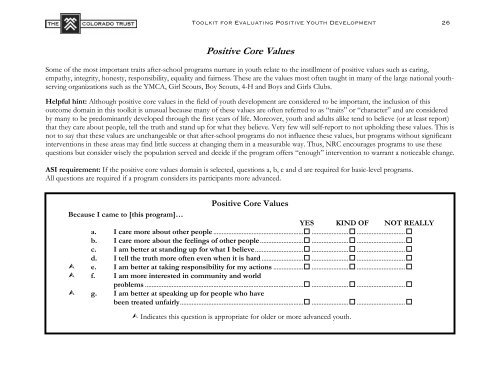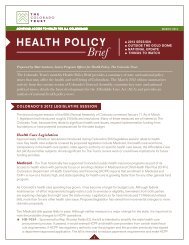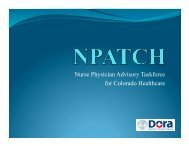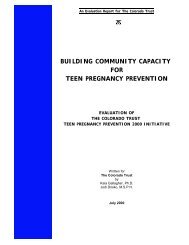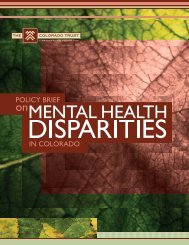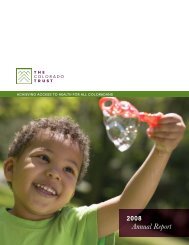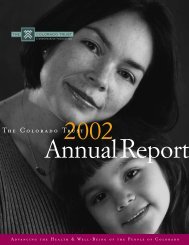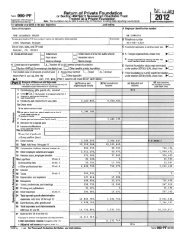After-School Initiative's Toolkit for Evaluating
After-School Initiative's Toolkit for Evaluating
After-School Initiative's Toolkit for Evaluating
Create successful ePaper yourself
Turn your PDF publications into a flip-book with our unique Google optimized e-Paper software.
<strong>Toolkit</strong> <strong>for</strong> <strong>Evaluating</strong> Positive Youth Development 26<br />
Positive Core Values<br />
Some of the most important traits after-school programs nurture in youth relate to the instillment of positive values such as caring,<br />
empathy, integrity, honesty, responsibility, equality and fairness. These are the values most often taught in many of the large national youthserving<br />
organizations such as the YMCA, Girl Scouts, Boy Scouts, 4-H and Boys and Girls Clubs.<br />
Helpful hint: Although positive core values in the field of youth development are considered to be important, the inclusion of this<br />
outcome domain in this toolkit is unusual because many of these values are often referred to as “traits” or “character” and are considered<br />
by many to be predominantly developed through the first years of life. Moreover, youth and adults alike tend to believe (or at least report)<br />
that they care about people, tell the truth and stand up <strong>for</strong> what they believe. Very few will self-report to not upholding these values. This is<br />
not to say that these values are unchangeable or that after-school programs do not influence these values, but programs without significant<br />
interventions in these areas may find little success at changing them in a measurable way. Thus, NRC encourages programs to use these<br />
questions but consider wisely the population served and decide if the program offers “enough” intervention to warrant a noticeable change.<br />
ASI requirement: If the positive core values domain is selected, questions a, b, c and d are required <strong>for</strong> basic-level programs.<br />
All questions are required if a program considers its participants more advanced.<br />
Positive Core Values<br />
Because I came to [this program]…<br />
YES KIND OF NOT REALLY<br />
a. I care more about other people ...................................................... ...................... .............................<br />
b. I care more about the feelings of other people.......................... ...................... .............................<br />
c. I am better at standing up <strong>for</strong> what I believe............................. ...................... .............................<br />
d. I tell the truth more often even when it is hard ......................... ...................... .............................<br />
e. I am better at taking responsibility <strong>for</strong> my actions .................. ...................... .............................<br />
f. I am more interested in community and world<br />
problems ............................................................................................... ...................... .............................<br />
g. I am better at speaking up <strong>for</strong> people who have<br />
been treated unfairly.......................................................................... ...................... .............................<br />
Indicates this question is appropriate <strong>for</strong> older or more advanced youth.


